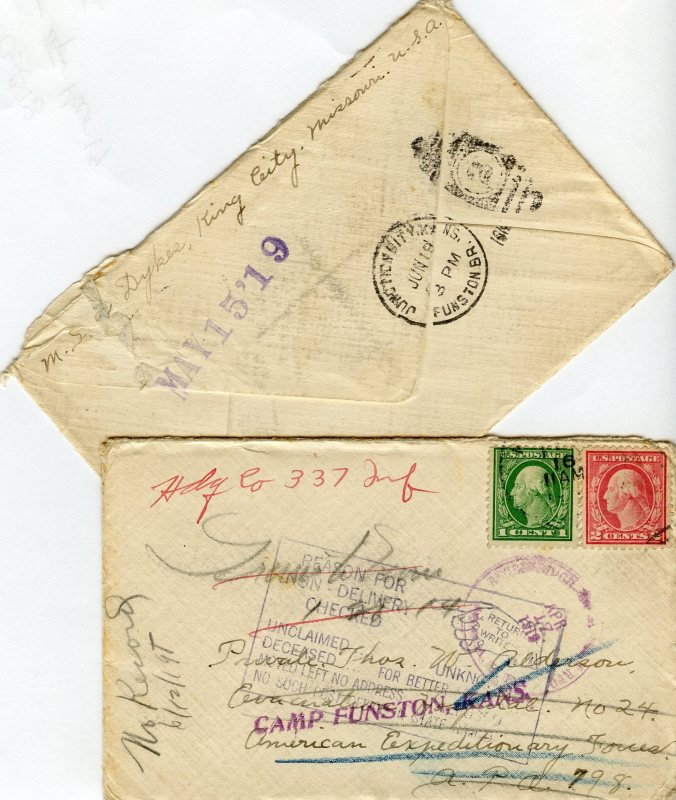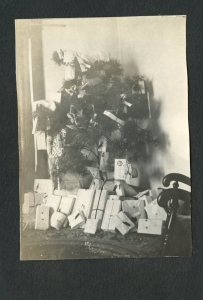
Christmas approached, and homes like my grandmother’s welcomed the holiday. Here’s a picture of gifts around a tree at the Dykes farm, probably taken around 1915-1916.
The weather had changed mid-December, an event that made the front page of the King City Chronicle on December 19: Three Weeks of Winter and It Began to Thaw. Ice covered the roads, it was reported, but cars (or “autos”) could pass with chains. And enough snow remained to create a nice surface for sledding. All in all, the Chronicle concluded, “splendid winter weather tho the coal was short.”
A thaw, with a persistent chill. This also describes my grandparents’ relationship in December. They hadn’t spoken much since mid-July, a conclusion I’ve drawn from the absence of letters. But on a Monday night in early December, Grandpa sat down and wrote a letter asking Grandma to give him another chance (or at least, hear him out). The letter started and ended in uncharacteristically formal language, addressed to “Miss Inis Dykes” and signed by “Thos W. Alderson.” Grandpa requested a “hasty answer.”

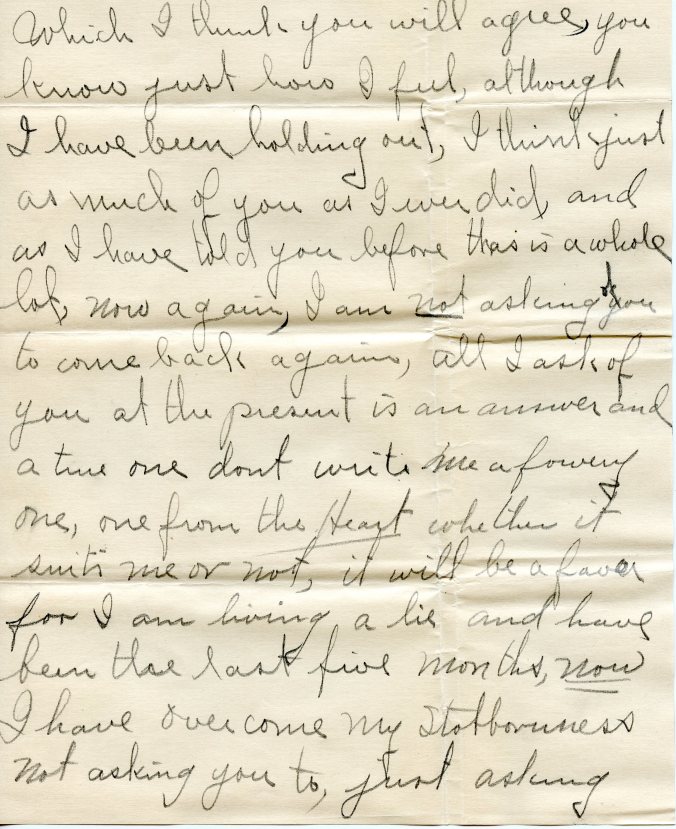

King City Mo
Mon Night
Miss Inis Dykes,
If you will allow me to I will relieve myself of a few words this eve. I expect you will be a little surprised, but I feel justified in doing so. I never did figure out the difference between us, whether it was your stubbornness or mine. Sometimes I feel a whole lot of blame on myself, I am not getting down on my knees, please don’t mistake me. I am going to tell facts. I know I have acted Dignified with you, but also respected you above reproach also tried every way to show you I was gentleman in ever respect which I think you will agree. You know just how I feel, although I have been holding out, I think just as much of you as I ever did, and as I have told you before this is a whole lot, now again, I am not asking of you to come back again, all I ask of you at the present is an answer and a true one don’t write me a flowery one, one from the Heart whether it suits me or not, it will be a favor for I am living a lie and have been the last five months, now I have overcome my stubbornness, not asking you to, just asking you to give it to me as you feel and I will make the best of it either way, because I have to. I have told you before which you will well remember I can live without you, but it is not with pleasure. I know about your man you write to and don’t let me interfere with that for that is not my intentions, what I want to know is just how you feel, and you will do me a great favor by letting me know, I also ask you if you would accept a Xmas present from me with pleasure
So with love,
I will close
Thos W Alderson
Hasty answer
Not having Grandma’s letters, presenting her side of the story, I’m left to decipher these matters of the heart from Grandpa’s suggestions. “I never did figure out the difference between us, whether it was your stubbornness or mine.” So, a misunderstanding fueled their separation, and a digging in, it seems, on both sides. An honest response, he writes, would “be a favor for I am living a lie and have been the last five months.” They split up around the middle of July, by his account. I’m not sure what kind of lie he means. But I’m fairly certain that “your man” refers to Stanley Brown.
Grandpa did send her a Christmas gift, with or without her permission.


One thing I know about Grandma’s family, Christmas was an especially important holiday. They gathered every year. I remember hearing Grandpa say, “I always promised to take your grandmother home for Christmas.” On this Christmas, in 1919, her older sister Mattie returned by train from Flagler, Colorado, where she was completing her first year teaching school. The Chronicle noted her homecoming, “Miss Mattie Dykes came in Sunday [12.21.19] to spend the Xmas vacation with home folks.” And over at Grandpa’s place, his people gathered, too. His younger brother Marshall arrived for a visit earlier in December, the Chronicle noted. I believe he lived in nearby St. Joseph, Missouri at the time, selling life insurance.
I can imagine how the presence of family at Christmas may have thawed the ice drawn tight around my grandparents’ faltering romance. Their families, like most, had their opinions, along with their shared hopes and dreams. Grandpa’s mother was fond of Grandma, as was made clear during the war correspondence. In a letter Grandpa wrote after Christmas, he admits that through the “conflict,” the Dykes family had always been nice to him. It’s not hard for me to see some nudging and free advice being passed around their holiday tables.
But I come back to a word Grandpa used in his letter–stubborn. This describes the man I knew, or comes close to describing what I saw as a proud man. Grandma, on the other hand, led her life (at least in my eyes) in a steady, deliberate way. She didn’t have to be right, but she needed to know something was right. She took her time. Once, she told me about fishing, how it was important to go far out in the water and wait, sitting still in the boat, trusting the fish would come to you, in due time. That’s how I remember she lived her life, equal parts trust and patience. That Christmas, in 1919, was she waiting for marriage to be the right decision?
She answered Grandpa’s letter, which made him happy. In his response (a long one), you’ll find references to local gossip and how he resented the way townspeople had meddled over the summer in what was none of their business. He also admits he left the Christian Church in King City because of the “black eye” he’d received. And that mistake of July 3? He doesn’t elaborate.


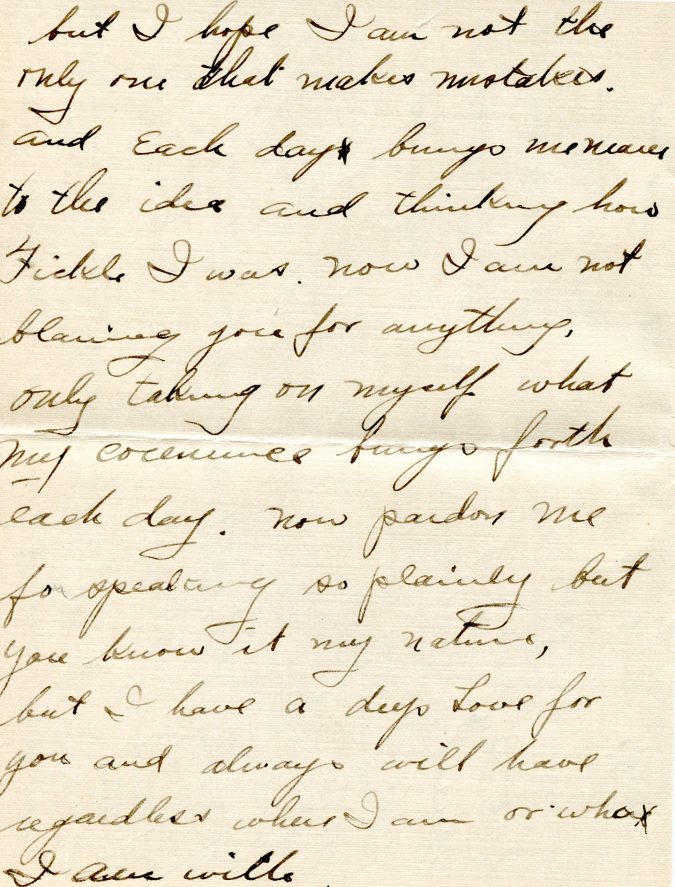
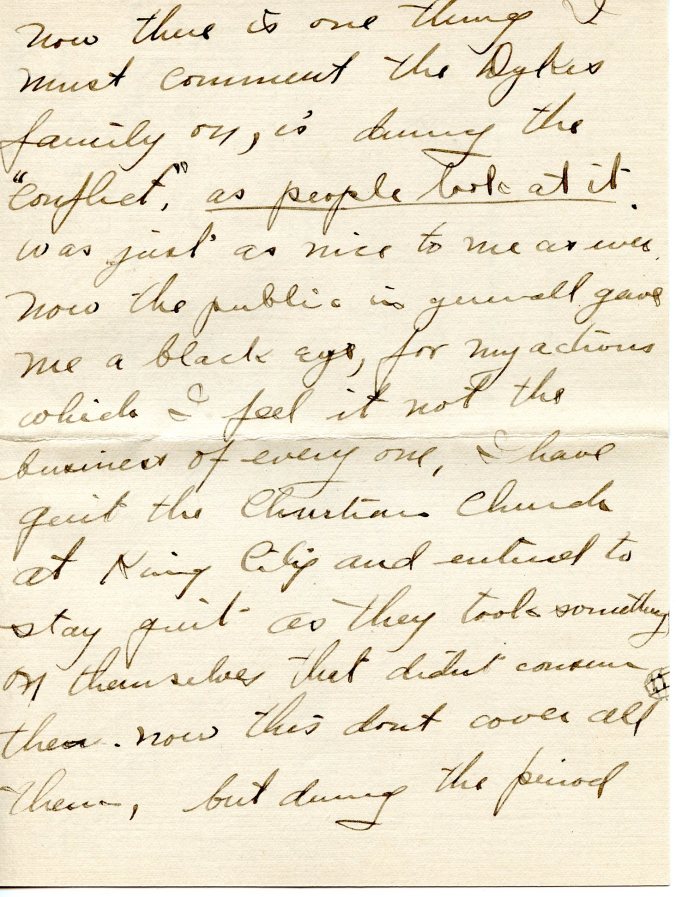

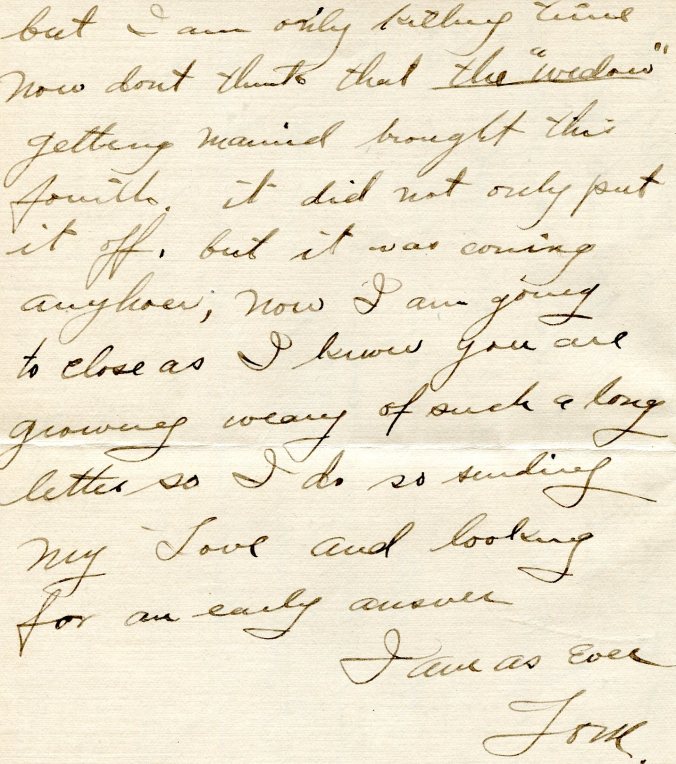
King City Mo
Dec 28, 1919
Dear Inis
Last evening after a long and hard also muddy trip from Maysville I reached home about eight oclock, finding I had a letter of yours waiting me I was very well pleased. So I am going to answer which I hope will be as gladly received as your’s was. I hardly know what to say but in the beginning I will tell you why I sent you the parcel. As Xmas was drawing near I thought I would not feel right if I did not remember you, although Xmas not being the only time my mind wanders that way and knowing how nice and good you have and always was, and especially during my war period, been to me so my conscience would not allow me to buy any one else a remembrance without remembering you. Now I am a “black sheep” which I guess you know already, and if you would do me the way I deserve you would never speak to me, but I know you have too much sound sense and reconsideration for such as that. Now I am speaking the truth and not trying to flatter anyone. I realize and have for several months that the night of July 3rd last I made the mistake of my life, but you are the first one I have told it too. But I hope I am not the only one that makes mistakes and each day brings me nearer to the idea and thinking how Fickle I was. Now I am not blaming you for anything, only taking on myself what my conscience brings forth each day. Now pardon me for speaking so plainly but you know it my nature, but I have a deep love for you and always will have regardless where I am or who I am with. Now there is one thing I must comment the Dykes family on, is during the “conflict,” as people look at it, was just as nice to me as ever. Now the public in general gave me a black eye, for my actions which I feel it not the business of every one. I have quit the Christian Church at King City and entended to stay quit as they took something on themselves that didnt concern them. Now this don’t cover all them, but during the period which I am speaking I am saying and can say I did nothing that was disrespectful and nothing to be ashamed of even though as I have already told you I made the bad mistake July 3rd, but you will agree with me it was nobody’s business but yours and mine. Now I am not getting down on my knees any oftener than my conscience tells me too, and think I be a man with lots of nerve to ask you to mark off the past and forgive but one thing I ask you is an opportunity to talk with you. So I am leaving it to you and thinking you will allow me the privilege also if satisfactory you may set the date and I will respond at any time. Guess you have hard I am seeing a woman at town at present and having a nice time as she is very nice and jolly girl but I am only killing time. Now don’t think that the “window” getting married brought this forth. It did not only put it off but it was coming anyhow. Now I am going to close as I know you are growing weary of such a long letter so I do so sending my love and looking for an early answer
I am as ever
Tom.
Apparently, Grandma responded to this letter with yet more concerns. On the back of a small New Year’s card, Grandpa scribbled this note. His reference to “the program at Winslow” is presumably the Christmas program at the church he attended in Winslow, a little town south of King City.

Dear Girl
I have been undecided whether to ans(wer) your most welcome letter or not as you did not say to. As the rush is over I am going to take a few minutes in writing. I have had a very nice Xmas, hope you were served all right. I helped in the program at Winslow. They say I did real good for a new beginner anyhow I guess. I see by your letter you did not understand me in several places, am real sorry, I tried to make it plain, and I have not room to go to details this time, but I can talk as good as ever, Ha Ha, now don’t think I am crazy for I am not. An answer will be highly appreciated, use your pleasure
T.W.A.
Grandma “used her pleasure” to hear him talk “as good as ever.” She must have liked what she heard because three weeks later, on January 15, 1920, they were married. The Chronicle ran the wedding notice, concluding with this description of their wartime romance.
He answered his country’s call and went to the front in defense of his country’s flag and what it represents. He was at the front in reality and will ever, during life, wear the marks of the hero in the cause of right. She, in the realm of noble womanhood, remained at home, but was ever active and doing and cheering by word and deed, that noble influence and help that are so necessary to encourage and support those at the front. We tip our hat in honor of their “well done” efforts and hope for a bright future and much happiness for Mr. And Mrs. Alderson.
King City Chronicle, January 23, 1920, p. l

Mr. and Mrs. Thomas Alderson, wedding photos, 1920.
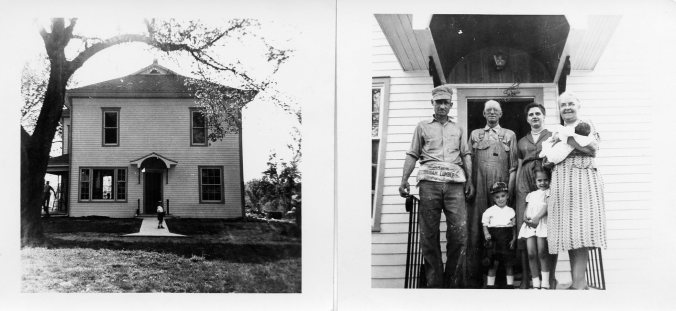
 “Thomas Alderson always pleases his audience and he did so again on this occasion.” Chronicle, July 4, 1919, p. l.
“Thomas Alderson always pleases his audience and he did so again on this occasion.” Chronicle, July 4, 1919, p. l.



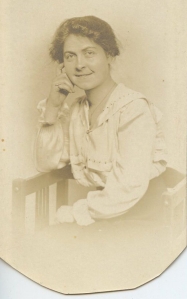 She wanted “fussing,” Grandpa’s word for paying her some attention. While Grandpa was making sense of his war experience through speeches and reunions, I imagine Grandma was sorting out her own feelings, including her expectation that they would been engaged by now.
She wanted “fussing,” Grandpa’s word for paying her some attention. While Grandpa was making sense of his war experience through speeches and reunions, I imagine Grandma was sorting out her own feelings, including her expectation that they would been engaged by now.